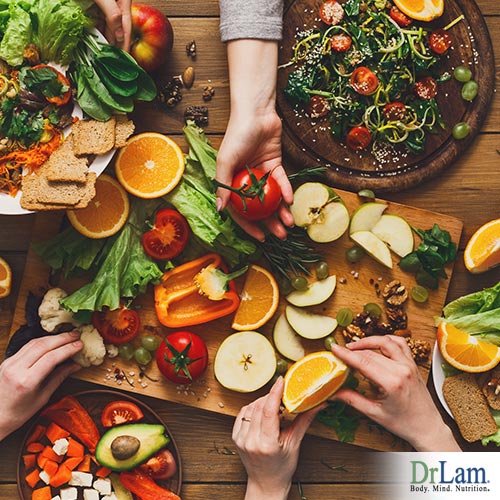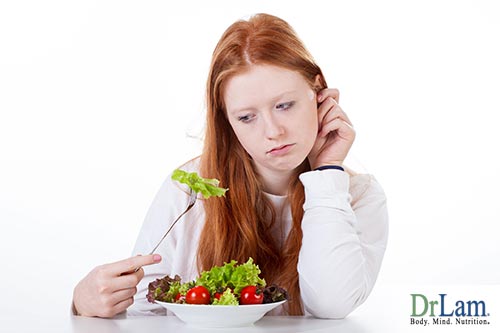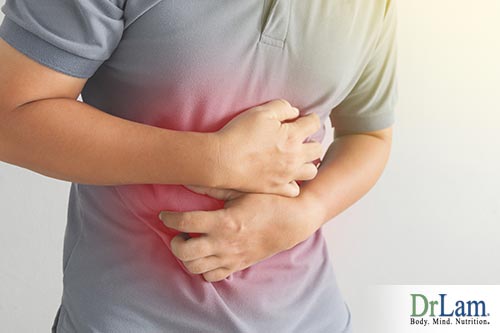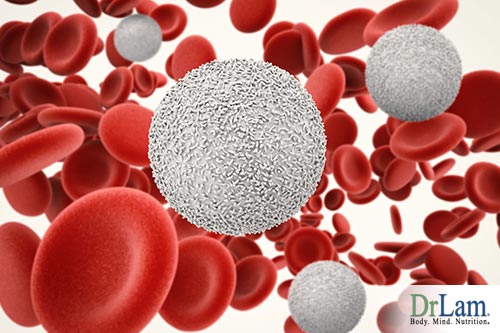 The vegan diet is not just another fad; it’s a growing movement in the world of nutrition that has been gaining a lot of attention lately. In the US, the number of vegans hovers somewhere between 0.1-0.5% of the population at any time.
The vegan diet is not just another fad; it’s a growing movement in the world of nutrition that has been gaining a lot of attention lately. In the US, the number of vegans hovers somewhere between 0.1-0.5% of the population at any time.
Veganism is a lifestyle choice that people make for different reasons: some do it for ethical reasons, some for health, and some for environmental reasons.
Vegans do not eat animal products, such as meat, seafood, dairy, and eggs. Some also avoid honey and read product labels to make sure they are free of substances made from animal parts, such as gelatin. Beyond diet, vegans that choose to be vegan for ethical reasons usually extend these restrictions to avoid purchasing leather, silk, wool, or any materials made with animal products.
Vegetarians on the other hand only restrict the consumption of flesh, while still allowing for the consumption of animal products like dairy or eggs.
Although the number of vegans is relatively small, there has still been a massive increase in vegan-friendly products on the market: from fake meats, gourmet raw vegan dishes and vegan fast food to cruelty-free fashion and cosmetics.
For this article, we have chosen to focus on the health benefits and concerns of a vegan diet, especially for those with adrenal fatigue.
Some people that haven’t thoroughly researched veganism will immediately question its health benefits, citing lack of protein and calcium as the biggest concerns. Although there are definite micronutrient risks with a vegan diet that is not well-rounded, that goes for any diet that is not well-rounded.
At the same time, those who choose veganism for ethical or environmental purposes without researching the health risks can place themselves in harm’s way by not planning their meals well. Some even revert to vegan junk food such as chips, cookies, refined carbs, processed foods, and other unhealthy substitutes.
Whatever the case, like most other diets out there, the pros and cons depend on how you do it.
Some of the health benefits of a well-planned vegan diet include:
As you can see, a well-planned vegan diet does have tremendous health benefits. These health benefits are being documented by doctors and organizations the world over, including the World Health Organization. But again, the emphasis is on a diet being well planned. If you eat vegan and healthy, you’ll get enough protein and other needed nutrients, and may only need minimal supplementation such as with B12.
Some of the health risks of a vegan diet that is not well planned include:
These risks are more problematic for pregnant and lactating women (particularly for developing fetuses) as well as very young children. Extra care must be taken for these groups when planning vegan meals.
These health benefits are not exclusive to fully vegan diets; you can simply reduce your consumption of animal protein and increase your intake of whole fruits and vegetables.
Adrenal Fatigue Syndrome (AFS) is a condition that is greatly influenced by what you eat. In fact, other than getting proper rest and reducing stress levels, diet is the biggest factor in adrenal fatigue recovery. So if you’re considering going vegan, you need to have a clear understanding of how it will affect your adrenals and your AFS symptoms.
AFS is a progressive condition, and by the time you feel the symptoms consistently, you have already entered one of the more advanced stages. That’s because in the early stages, your adrenals are still able to maintain adequate levels of production of the body’s primary anti-stress hormone, cortisol.
During these early stages, you can have a few symptoms here and there, but your adrenals are working hard to compensate. You’ll also tend to use stimulants such as coffee and sugar to power through, and you’ll still be able to function almost as well as healthy individuals.
It’s only when your adrenals are so overworked that they can’t produce enough cortisol that your symptoms will become severe enough to get your attention. By that time, the rest of your NeuroEndoMetabolic (NEM) Stress Response is probably also dysregulated.
 Recovering from AFS on a vegan diet is doable, but we don’t recommend that you make that drastic of a change to your diet just to recover from AFS. This means that unless you are choosing veganism for other purposes, it’s best to put it on hold until your adrenals are back to full strength.
Recovering from AFS on a vegan diet is doable, but we don’t recommend that you make that drastic of a change to your diet just to recover from AFS. This means that unless you are choosing veganism for other purposes, it’s best to put it on hold until your adrenals are back to full strength.
This is especially the case with high fruit vegan diets. The reason for this is that most fruits contain a lot of fructose or fruit sugar. This can cause a spike in blood sugar levels, stimulating the pancreas to overproduce insulin, which will then lead to hypoglycemia. This exacerbates the fatigue you are already battling with in AFS. Many fruits also contain a lot of potassium, which can further imbalance the sodium-potassium ratio that is already present in those with AFS. It is better to limit fruit consumption, and avoid them altogether in the morning for breakfast.
Considering the dietary restrictions for adrenal fatigue recovery, it may be difficult to follow a vegan diet in the setting of AFS. Getting optimal nutrition from your food should be the focus.
With this in mind, you might want to consider a well-established adrenal fatigue diet first before veganism. It is composed of:
Supplements can also be added depending on your condition, and both the diet and the supplement regimen should be planned with your particular condition and needs in mind.
So, what if you’re already vegan?
You can definitely stay vegan, and just make adjustments to your diet so that it supports your adrenals. You’ll replace the animal proteins with vegan sources of proteins, such as tofu and other types of beans and legumes while keeping the ratio the same as the above.
It is best to do this with the help of a professional, especially with regards to the extra supplementation you might need to avoid the deficiencies we outlined before. These deficiencies can become even more problematic when your adrenals are not functioning properly.
It is important not to take a shotgun approach to supplements, and only take what is recommended for you by your doctor or nutritional coach.
Inflammation has been shown to be the root cause of many chronic illnesses, including autoimmune conditions, heart disease, and even depression. It also seems to be more of a risk during important hormonal changes, such as pregnancy and menopause.
 The thing to remember about inflammation is that it almost always begins in the gut. Chronic inflammation beginning in the gastrointestinal (GI) tract can be triggered by many different factors: stress, adrenal fatigue, dysbiosis, food allergies, bad diets, alcohol consumption, and many others.
The thing to remember about inflammation is that it almost always begins in the gut. Chronic inflammation beginning in the gastrointestinal (GI) tract can be triggered by many different factors: stress, adrenal fatigue, dysbiosis, food allergies, bad diets, alcohol consumption, and many others.
A common consequence of all these factors is a leaky gut, where the intestinal lining is compromised, letting substances (such as toxins, food particles, and pathogens) into your bloodstream that shouldn’t be there.
As soon as your immune system recognizes these unwanted particles, it mounts an attack, part of which is the NEM’s inflammation response. But since the lining is still leaky, it keeps letting more substances in, and the immune response remains in a constant state of activation.
Diet often plays a large role in stress and inflammation. If your diet contains a lot of sugar or foods that you’re allergic to, if you conform to the Standard American Diet (high in fat and low in fiber) or drinking too much alcohol, your gut lining is at stake, and you most likely suffer from chronic inflammation.
Also, if you have AFS, your adrenal glands may not be able to keep up with the high demand for cortisol to put out these fires, and your inflammation is then left running the show without any form of control.
A well-planned, whole-food vegan diet can prevent or heal these issues, since it is high in fiber, low in sugar and other processed substances, and has a lot of anti-inflammatory nutrients and antioxidants.
Also, cutting out animal products that contain inflammatory compounds is another reason why vegan diets can help with inflammation. For example, reducing arachidonic acid, which is inflammatory for the brain and found mainly in chicken and eggs, may help decrease the risk for depression and other mood impairments. Compared with those who eat the Standard American Diet, plant-based diets have around nine times less arachidonic acid.
If you are considering taking up a vegan diet purely for health reasons, you are on the right track, but you should also know that you can get the same health benefits, and perhaps even more, with a plant-based diet that includes a few animal products here and there.
 We also recommend that you make sure it is aligned with your blood type before you take this step. For example, a vegan or vegetarian diet meshes well if your blood is Type A, and to a lesser extent if your blood is Type AB. If your blood is Type B, you will do better on a more omnivorous diet, and if your blood is Type O, you most likely feel your best when eating meat.
We also recommend that you make sure it is aligned with your blood type before you take this step. For example, a vegan or vegetarian diet meshes well if your blood is Type A, and to a lesser extent if your blood is Type AB. If your blood is Type B, you will do better on a more omnivorous diet, and if your blood is Type O, you most likely feel your best when eating meat.
Finally, if you’re in a more advanced stage of AFS, or if you have another chronic condition, it is always better to change your diet with the help of an experienced professional so that you ensure a smooth transition and maximum benefit, and avoid crashes and other pitfalls.
Whether you go fully vegan or take a more flexible approach, it is always a good idea to increase your consumption of fresh fruits and vegetables, nuts, seeds, and healthy fats, and decrease processed foods, unhealthy fats, sugar, and animal products.
Taking up a vegan diet is not the easiest decision for most of us; we’ve grown accustomed to eating a certain way since childhood. But you don’t need to go vegan all the way to reap its many health benefits, especially if you have a condition that requires a more gradual approach.